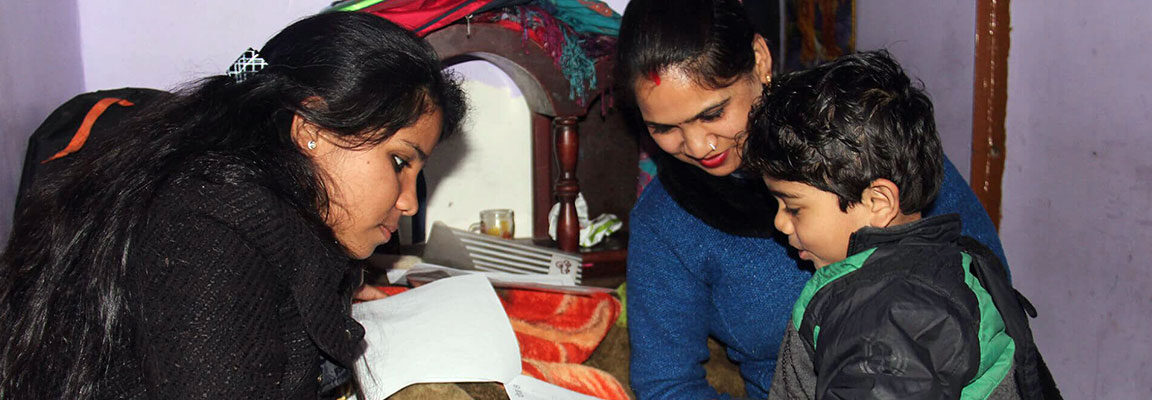


Date : Sep 25 , 2020 | Opinion
Ankit Arora, the founder of Saarthi Education, says we need to urgently address the problem of increasing inequity in education by focusing on foundational learning support for children from underserved communities.
India’s school system reflects an ever-widening gap. Students from privileged backgrounds get the best resources, especially in early childhood, which ensures that they are able to develop much better cognitive abilities and soft skills and puts them way ahead of children from underserved communities. The moment children from low-income families set foot in schools, they are already far behind their privileged peers.
There is a crying need to level this playing field, and create equal opportunity for all children to learn and grow. For this to happen we need work to happen with parents because children spend significantly more time with their family and the community than in school. Parents will always play a vital role as companions in their learning. We at Saarthi Education have worked relentlessly for the last three years to build a system that offers mothers from low-income families necessary resources and counselling to allow them to ensure that their children are adept in foundational learning skills.
There are two critical factors in ensuring learning outcomes at home:
The COVID-19 crisis and the lockdown have aggravated deep-set class and social differences, widening the already existing learning gap. Children from high-income families have access to requisite technology, internet connection and other school supplies compared to their counterparts from lower-income households. Maintaining this ‘privilege gap’ looks to be a struggle for children from low-income households.
On a national scale, we have been witnessing the crisis migrant workers are facing during the lockdown, with severe implications in terms of reduced income and increased burden for these families. Faced with concerns about survival, their children’s education is understandably not a priority for such parents at this point.
If anything, the pandemic has shown us that we cannot adequately prepare children for the future of learning without first ensuring equality of opportunity. The issue of equity in education has to be at the top of our agenda with a focus on critical thinking, problem-solving, and self-management along with digital skills as skillsets to move forward.
We are currently treating education as a Formula 1 race with the driver having the best time record getting to start from the pole position in the race while the rest of the drivers will start further down the line-up. If you are starting from the first five positions, you are most likely to win the race. If you are restarting from the bottom five, the gap with the top drivers only increases as the race progresses. It will be a longer, harder race to the finish line.
We need to actively work towards the vision of all children being able to start on an equal footing in their learning journey. We need to do it with creativity, flexibility and resilience, tackling problems as they emerge. No child should have to struggle throughout their lives just to be able to learn.
Investing in foundational learning skills is the proactive measure that is both effective and economically efficient, than trying to close this gap later on.
Date : Jul 4 , 2024
Date : Jun 27 , 2024
Date : Jun 15 , 2024
Date : Apr 5 , 2024
Date : Mar 28 , 2024
Date : Jan 25 , 2024
Date : Mar 22 , 2023
Date : Mar 15 , 2022